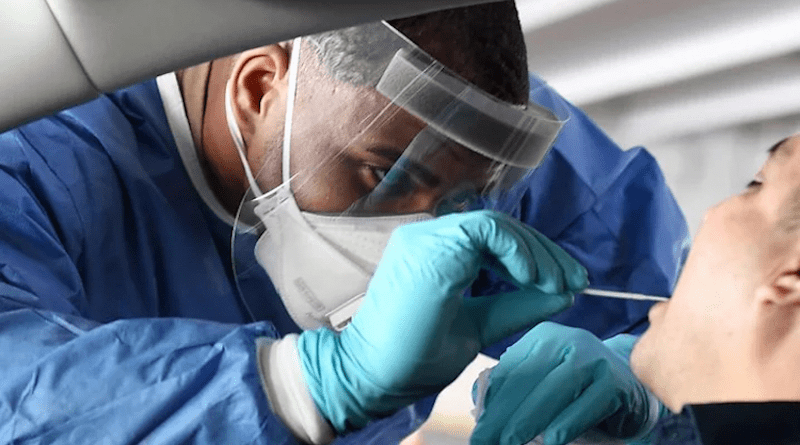US Accused Of COVID-19 ‘Travel Apartheid’ – OpEd
By IDN
By Lisa Vives
Harsh criticism continues to be heard from Africans and their leaders against UK and U.S. travel restrictions allegedly to control the spread of the Omicron Covid-19 variant—now showing up in several U.S. states.
“What is expected is a global approach, not selective,” Sarafa Tunji Isola, Nigeria’s high commissioner to the UK, told the BBC.
He also echoed comments made by the UN’s chief, who described restrictions imposed on some southern African countries as “travel apartheid.”
Nigeria has criticized the UK’s travel restrictions after it was placed on the red list amid fears over the Omicron Covid-19 variant.
The latest travel restrictions facing Nigeria mean that travelers of that country will be required to enter hotel quarantine – at their own expense – and isolate for 10 days.
“The travel ban is apartheid in the sense that we are not dealing with an endemic,” Mr Isola said in a press interview. “We are dealing with a pandemic. Whenever we have a challenge there must be collaboration.”
UK government minister Kit Malthouse, denied that there was a racist bias in the treatment of low-income countries who have been denied vaccines because of patents held by U.S. and European corporations. He called the wording “travel apartheid” “very unfortunate language”. “We understand the difficulties that’s created by these travel restrictions, but we’re trying to buy a little bit of time so that our scientists can work on the virus and assess how difficult it’s going to be” he told the BBC.
The UK’s Department of Health and Social Care said all countries collect data differently, meaning it is hard to directly compare the information.
Nigeria is now the 11th country to go on the UK’s red list for international travel. All nations currently on that list are African.
The only people allowed to enter the UK from African countries are UK or Irish nationals, or UK residents. They will also have to pay for and self-isolate in a pre-booked government-approved hotel for 10 days.
Nigerians in the UK expressed shock at the new restrictions.
Olufemi Awokoya told the BBC he was trying to raise money for his wife’s quarantine, as she is due to return from a trip to attend her mother’s memorial service.
“She is being punished and our household is put in financial hardship. She is a health services worker and tripled-jabbed, and we can’t afford the $3,024 hotel bill,” he said.
“I think the government’s decision… is wicked, unfair and a heavy financial burden.”
UN Secretary General António Guterres first used the term “travel apartheid” last week, telling reporters in New York that bans “are not only deeply unfair and punitive, they are ineffective”.
The World Health Organization (WHO) says blanket travel bans will not stop the spread of variants and will discourage countries from reporting and sharing important data.
Ghanaian President Nana Akufo-Addo, at a recent press conference, called the restrictions “instruments of immigration control”.
The new variant was first detected in South Africa in November by researchers studying the virus. It is now found in several American states and European countries.

